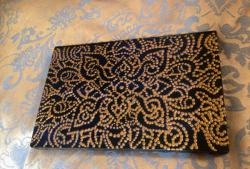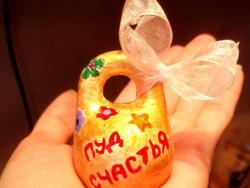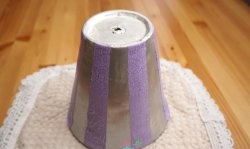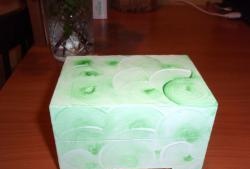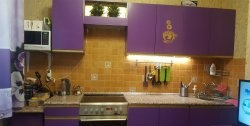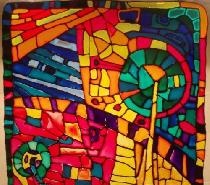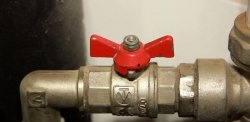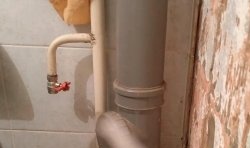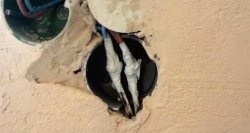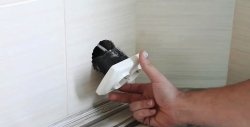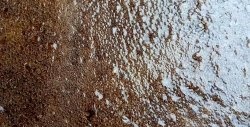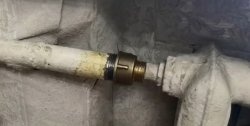Imitation of granite masonry
Plainly painted walls are, you see, a bit boring. Painting in several colors looks much more interesting. We present to your attention a master class on painting surfaces simulating three-dimensional granite masonry. Moreover, you don’t need to be an outstanding artist or decorator to make such a simple painting with your own hands - you will need a minimum of materials and your desire to “create.”
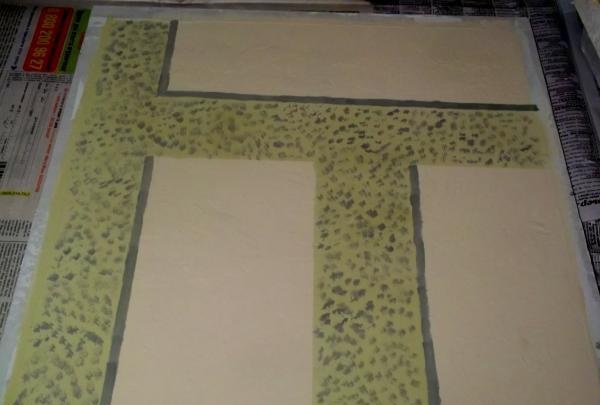
Tools and dyes:
• White water-based paint
• 3 types of colors: beige, olive and black
• Masking paper tape
• Foam roller
• Thin brush
• Paint tray
A base coat of paint must be applied to the previously prepared wall (puttyed and primed). Mix beige color and white water emulsion. Pour the resulting dye into the bath and roll it onto the surface using a foam roller. It is best and most correct to apply the base in 2 layers.
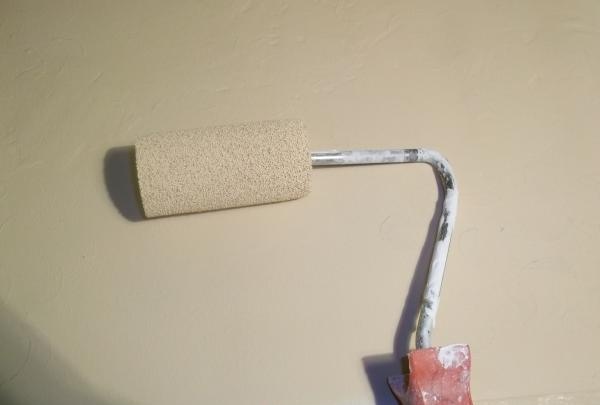
Give the paint time to dry completely. Then apply masking tape so that you get stripes of different sizes and thicknesses.
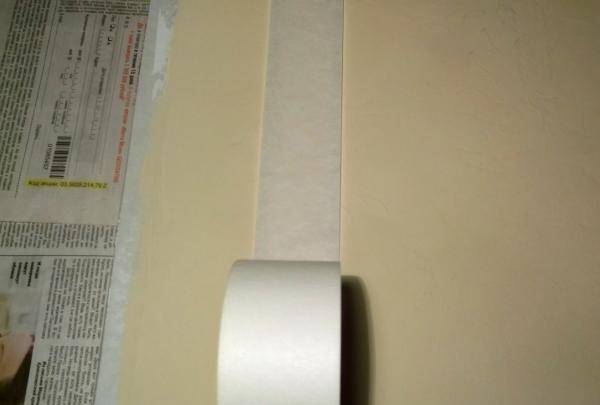
Glue paper tape according to the level or mark with a pencil dashed lines along which you can maintain the horizon and vertical of the stripes.
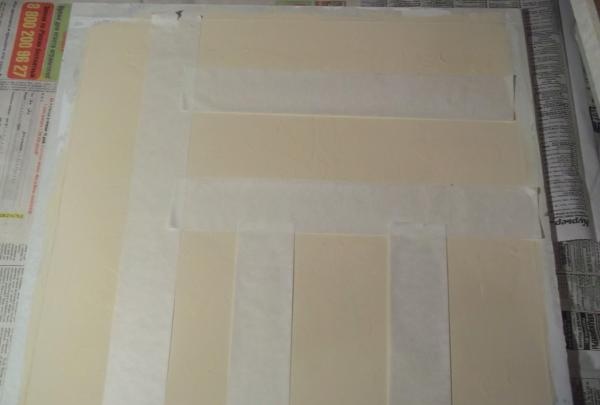
Make a new batch of dye: add olive color to the remaining beige paint and mix thoroughly until smooth. Dip the roller into the paint and roll up the marked stripes between the tape. Excess paint will remain on the paper and the stripes will turn out even.
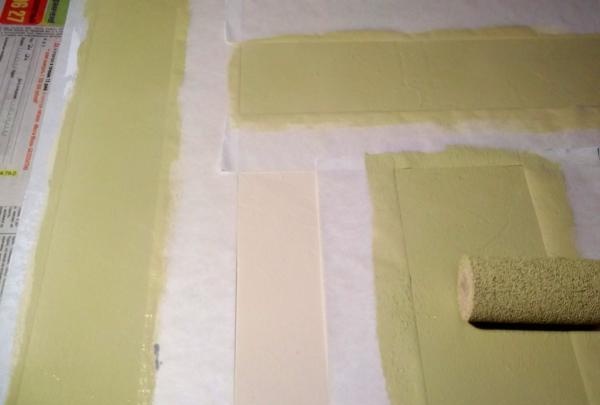
Let the olive tone dry and remove the tape. Then use color to extend the stripes that did not get paint in the same way (tape + roller).
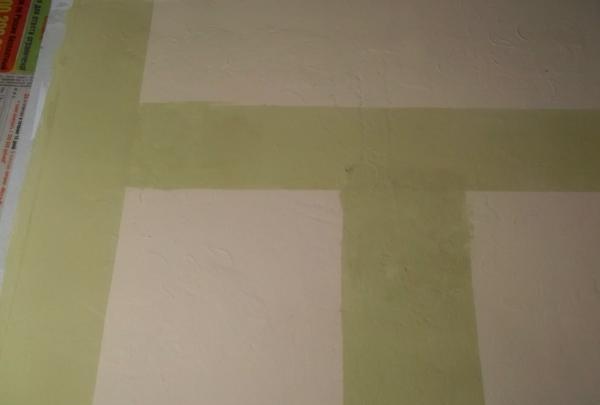
After the olive strips have dried, make the 3rd portion of dye: add just a little black color to the remaining olive beige. You should get a nice gray shade (as you can see, the previous dye is fully used, so try to calculate the volume of paint correctly). Lightly dip a thin brush into the paint and apply the color in a “striping” pattern.
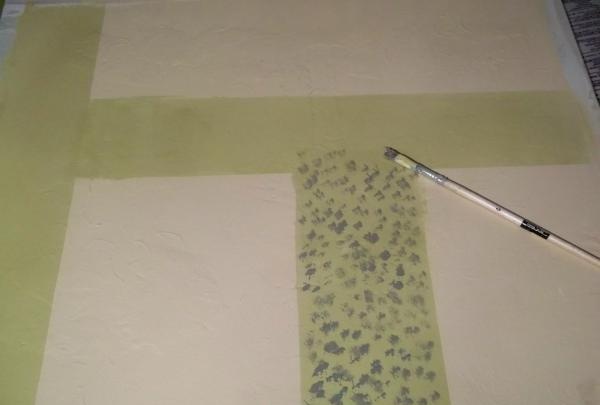
To complete the “picture”, we need to add volume to our “masonry”: draw gray stripes with the same thin brush, imitating the shadow of “granite”. That's it, the painting is ready!

Agree, this type of surface finishing looks very original and truly exclusive, because the painting is original and “made by hand”! How can you not show off your interesting decor to the guests of your cozy home?

Tools and dyes:
• White water-based paint
• 3 types of colors: beige, olive and black
• Masking paper tape
• Foam roller
• Thin brush
• Paint tray
A base coat of paint must be applied to the previously prepared wall (puttyed and primed). Mix beige color and white water emulsion. Pour the resulting dye into the bath and roll it onto the surface using a foam roller. It is best and most correct to apply the base in 2 layers.

Give the paint time to dry completely. Then apply masking tape so that you get stripes of different sizes and thicknesses.

Glue paper tape according to the level or mark with a pencil dashed lines along which you can maintain the horizon and vertical of the stripes.

Make a new batch of dye: add olive color to the remaining beige paint and mix thoroughly until smooth. Dip the roller into the paint and roll up the marked stripes between the tape. Excess paint will remain on the paper and the stripes will turn out even.

Let the olive tone dry and remove the tape. Then use color to extend the stripes that did not get paint in the same way (tape + roller).

After the olive strips have dried, make the 3rd portion of dye: add just a little black color to the remaining olive beige. You should get a nice gray shade (as you can see, the previous dye is fully used, so try to calculate the volume of paint correctly). Lightly dip a thin brush into the paint and apply the color in a “striping” pattern.

To complete the “picture”, we need to add volume to our “masonry”: draw gray stripes with the same thin brush, imitating the shadow of “granite”. That's it, the painting is ready!

Agree, this type of surface finishing looks very original and truly exclusive, because the painting is original and “made by hand”! How can you not show off your interesting decor to the guests of your cozy home?
Similar master classes
Particularly interesting
Comments (0)

